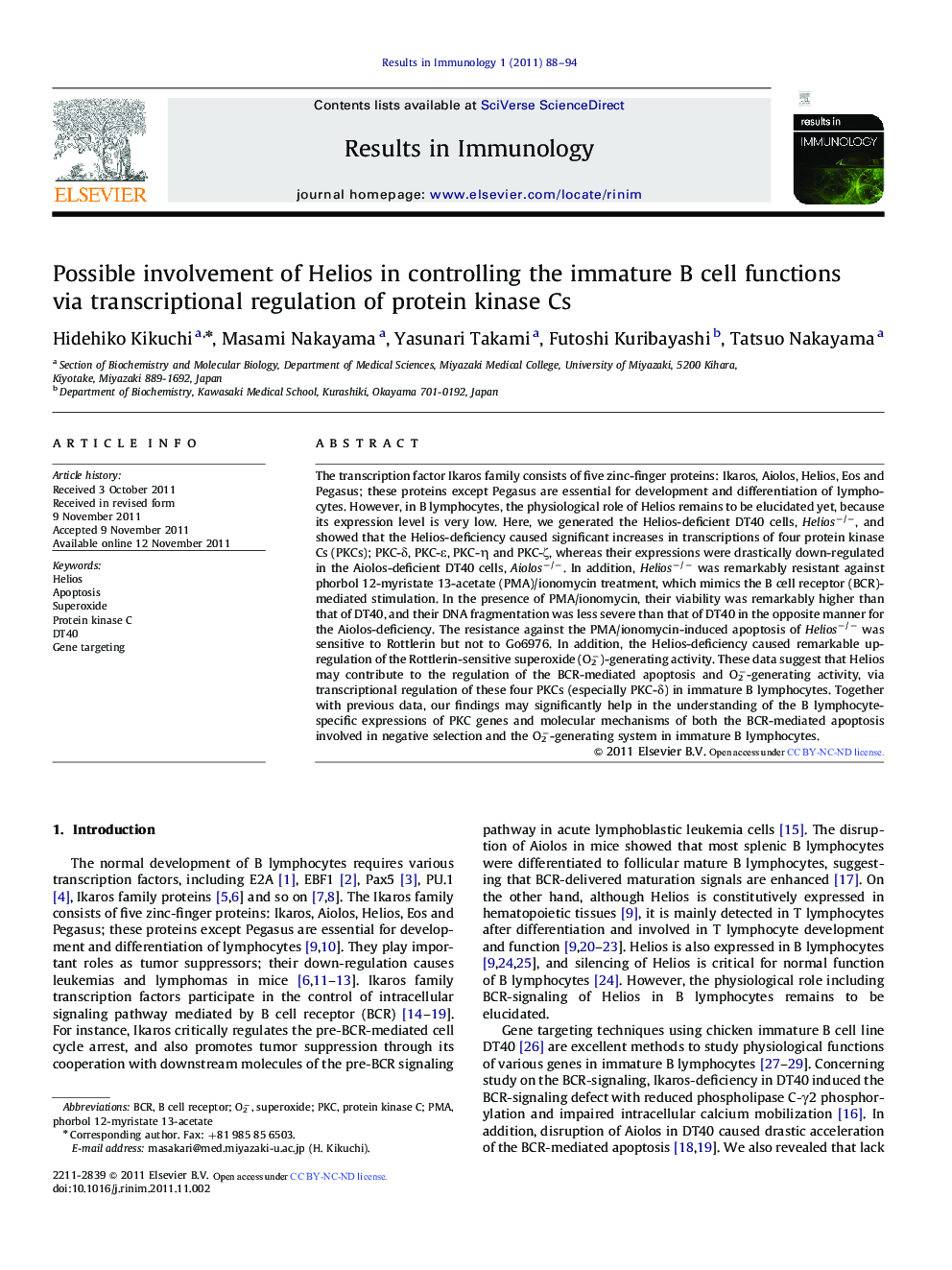| Article ID | Journal | Published Year | Pages | File Type |
|---|---|---|---|---|
| 2202413 | Results in Immunology | 2011 | 7 Pages |
The transcription factor Ikaros family consists of five zinc-finger proteins: Ikaros, Aiolos, Helios, Eos and Pegasus; these proteins except Pegasus are essential for development and differentiation of lymphocytes. However, in B lymphocytes, the physiological role of Helios remains to be elucidated yet, because its expression level is very low. Here, we generated the Helios-deficient DT40 cells, Helios−/−, and showed that the Helios-deficiency caused significant increases in transcriptions of four protein kinase Cs (PKCs); PKC-δ, PKC-ε, PKC-η and PKC-ζ, whereas their expressions were drastically down-regulated in the Aiolos-deficient DT40 cells, Aiolos−/−. In addition, Helios−/− was remarkably resistant against phorbol 12-myristate 13-acetate (PMA)/ionomycin treatment, which mimics the B cell receptor (BCR)-mediated stimulation. In the presence of PMA/ionomycin, their viability was remarkably higher than that of DT40, and their DNA fragmentation was less severe than that of DT40 in the opposite manner for the Aiolos-deficiency. The resistance against the PMA/ionomycin-induced apoptosis of Helios−/− was sensitive to Rottlerin but not to Go6976. In addition, the Helios-deficiency caused remarkable up-regulation of the Rottlerin-sensitive superoxide (O2−)-generating activity. These data suggest that Helios may contribute to the regulation of the BCR-mediated apoptosis and O2−-generating activity, via transcriptional regulation of these four PKCs (especially PKC-δ) in immature B lymphocytes. Together with previous data, our findings may significantly help in the understanding of the B lymphocyte-specific expressions of PKC genes and molecular mechanisms of both the BCR-mediated apoptosis involved in negative selection and the O2−-generating system in immature B lymphocytes.
